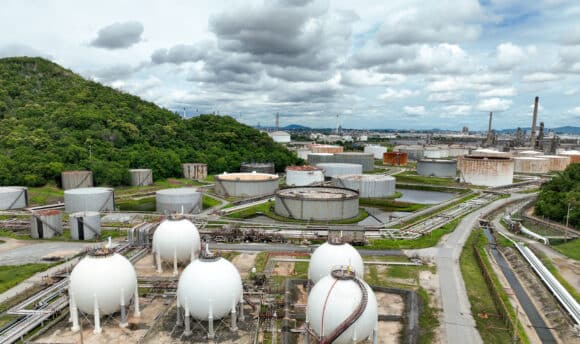
This shareholder season has seen an unprecedented level of action from investors via shareholder proposals urging insurance companies that are underwriting fossil fuel expansion to align their underwriting portfolios with a 1.5°C global warming pathway. And while these insurers tout their climate credentials, they continue to provide the coverage necessary to build and operate new fossil fuel projects and resist their shareholders’ calls for change.
In their proxy statements for this year’s Annual General Meetings (AGMs), Chubb, The Hartford, and Travelers asked shareholders to vote against shareholder resolutions calling on them to align their underwriting and investing activities with a 1.5ºC pathway:
- Green Century Capital Management filed a shareholder resolution calling on these three companies to stop underwriting new fossil fuel projects in line with the International Energy Agency (IEA)’s Net Zero Emissions by 2050 Scenario.
- As You Sow filed a resolution with Chubb and Travelers asking for the insurers to issue a report on how they intend to measure, disclose, and reduce greenhouse gas emissions from underwriting and investing in line with achieving net zero emissions by 2050.
While Chubb, The Hartford, and Travelers have taken some steps to limit underwriting of the coal and tar sands oil sector, none are aligning their underwriting with 1.5°C warming scenarios or with some of their peers in Europe that have ruled out support for oil and gas expansion. These companies remain among the top oil and gas insurers in the world.
“Instead of putting time and energy into developing ambitious policies to limit support for fossil fuel expansion, Chubb, The Hartford, and Travelers are fighting their own shareholders, who are concerned with the companies’ continued support for fossil fuels. Chubb and Travelers refuse to even report on their emissions, let alone follow the climate science and end insurance for new fossil fuels. Chubb’s proxy statement claims that its goals are aligned with a two-degree Celsius target and that it protects clients from extreme weather, but a closer look proves otherwise: Chubb is insuring oil and gas expansion worldwide, in direct contradiction to climate science. At the same time, it’s dropping its clients who are impacted by severe weather such as wildfires in California.”
“U.S. insurers like The Hartford and Travelers can no longer continue their unchecked support for fossil fuel expansion projects – from Arctic drilling to LNG terminals – that are threatening our communities and climate. This shareholder season, investors, activists, and frontline communities are rising up and demanding that these laggard insurance companies step up and take concrete action to stop climate destruction. As the IEA has made clear, that means no insurance for new fossil fuel infrastructure.”
Pressure from investors, as well as frontline communities and climate activists, is spurring minimal action among U.S. insurers. In its proxy statement, Chubb committed to “not insure tar sands projects in the future,” following up on a September 2021 statement that it was not currently insuring any tar sands projects. This puts it on par with Travelers and The Hartford: all three insurers have restrictions on their coal and tar sands underwriting business. However, they remain far from meeting best practice standards for policies on coal, as well as oil and gas. Additionally, while The Hartford did announce a net-zero by 2050 goal earlier this month, it lacked details on short-term actions, interim targets, or metrics to measure progress on emissions reductions.
In mid-April, activists staged a series of actions in San Francisco at the RIMS RISKWORLD conference, spotlighting Chubb, The Hartford, and Travelers for their fossil fuel business. This included painting a 30-foot mural outside the opening ceremony, wheatpaste poster designs throughout the city urging insurers to #DefundClimateChaos, and a giant banner calling on Chubb to take action to protect communities.



